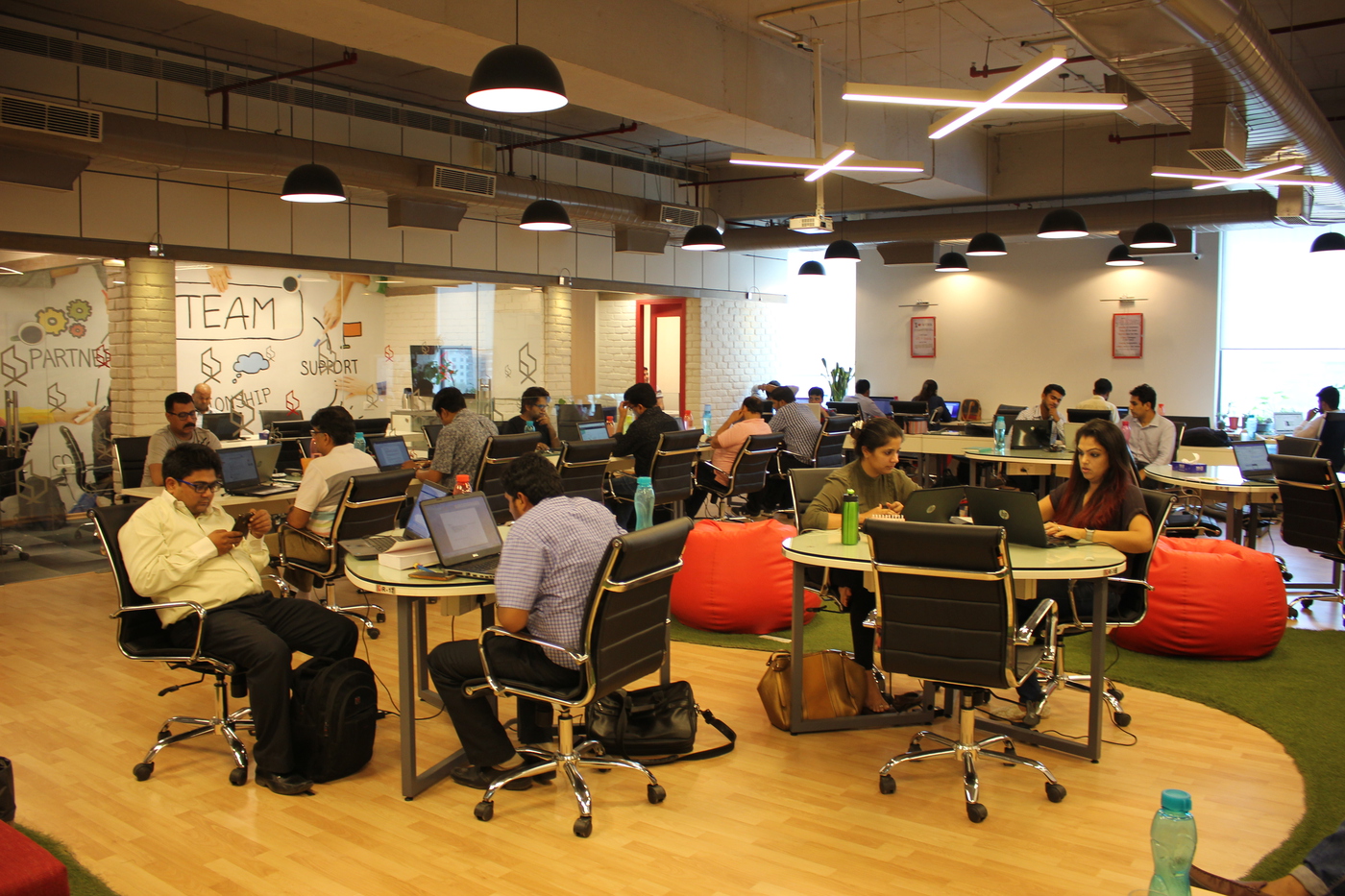Entrepreneurship is a challenge, and even more so if you are a woman. Despite their efforts and expertise, female entrepreneurs often struggle a lot more than their male counterparts to make it big and get recognized within the business community.
Out of 100 entrepreneurs in India, only 7 are female, says the Mastercard Index of Women Entrepreneurs. As per the Google-Bain report, only 20% of businesses in the country are owned by women, while the 2021 report by the World Economic Forum also shows a massive gender gap of 72% in India’s labor market.
Women entrepreneurs in India face a variety of challenges that are unique to their gender. Here are the 20 common challenges and problems faced by female entrepreneurs while starting a business in India and how to overcome them as given below:-
20 Major Problems & Challenges faced by Women Entrepreneurs in India in 2024
- Fewer sectors are Women friendly
- Lack of Social and Institutional Support
- Poor Funding Prospects
- Lack of Access to Professional Networks
- Pressure to Stick to Traditional Gender Roles
- Lack of an Entrepreneurial Environment
- Limited Mobility
- Lack of Education
- Low Risk-Bearing Ability
- Balancing Responsibilities between Family & Business
- Stiff Competition
- Limited Industry Knowledge
- Missing Role Models
- Social Construct
- Safety Concerns
- Gender Bias in Business Transactions
- Inadequate Representation in Policy-Making Bodies
- Limited Access to Technology and Digital Platforms
- Cultural Constraints and Stereotypes
- Legal and Regulatory Barriers
1. Fewer sectors are Women friendly
Despite the policies and measures to promote gender equality, men still dominate India’s entrepreneurial ecosystem. According to a recent report, most women-owned businesses in the country operate in low-revenue sectors, while men control the more profitable sectors like manufacturing, construction, and the like.
The male-centric nature of many industries also forces women entrepreneurs to operate in sectors that are historically called “women-friendly”, such as education, apparel, and beauty care, among others. It limits their experience, opportunities, and capabilities to a significant extent.
2. Lack of Social and Institutional Support
Most women business owners don’t get the social support they require to kick start their business from families, peers, and immediate ecosystems. Lack of mentorship from the business community is also one of the main challenges faced by women entrepreneurs in the country.
The case is no different when it comes to institutional support. Though there are schemes for promoting female entrepreneurship, many women don’t receive timely guidance or help from authorities. The absence of a proper support network adversely impacts their confidence and ability to take risks.

💡 Are you looking for Coworking space in Gurgaon, Noida or Delhi?. We are just a call away.
Call now: 08999 828282
3. Poor Funding Prospects
As unfair as it might sound, the funding scene in India has massive gender biases. Women-led businesses in the country lack access to capital due to the prejudices of investors and other factors. According to a report by Innoven Capital, of all the companies that received funding in 2019, only 12% had at least one female founder.
Many VC firms and angel investors are reluctant to invest in women-led businesses, while banks and financial institutions consider women less credit-worthy. Moreover, many Indian women don’t have property or assets in their name, which comes up as a problem while applying for collateral loans or private financing.
4. Lack of Access to Professional Networks
Limited access to professional networks is another one of the basic problems and challenges of women entrepreneurs in India. According to the Google-Bain survey, female business owners are less integrated with formal and informal networks. The survey further indicates that over 45% of urban small business owners suffer due to insufficient avenues of network development.
Studies also show that most of the existing professional networks are dominated by men, making it difficult for women to access or navigate such spaces. Consequently, they miss out on opportunities to grow their business, find collaborators and vendors, and build social capital.
5. Pressure to Stick to Traditional Gender Roles
Patriarchy conditions both men and women to play certain defined gender roles. Women are expected to cook, do domestic chores, raise kids, care for the elderly, and the like. Juggling familial and professional responsibilities is a challenge in itself, and even more so when you set out to build a brand.
The pressure to stick to traditional gender roles is among the main challenges faced by women entrepreneurs. Often, they are asked to give up entrepreneurship and take up an “easy” profession that helps them focus more on family and kids. What’s more, a woman who chooses her career over other things is looked down upon.
Also Read: Problems Entrepreneurs faced while starting a startup
6. Lack of an Entrepreneurial Environment
Entrepreneurship is a long journey that involves a lot of learning, un-learning, and upskilling. An environment that exudes a strong entrepreneurial spirit is crucial for a person to become a successful business owner. However, many women often suffer from the lack of such a productive environment.
To begin with, many women are forced to manage their businesses from home due to familial responsibilities. Consequently, they lose out on opportunities to go out, interact with the business community, and build their market access. It also impedes their learning opportunities, access to resources and mentors, and more.
7. Limited Mobility
Limited mobility is one of the basic problems of women entrepreneurs in India. They cannot travel alone or stay at hotels for business purposes without worrying about safety. What’s more, many hotels in India still don’t allow women to check-in unless accompanied by a man!
Though many financially independent women have started investing in vehicles, the number of women owning motorized vehicles in India is still fewer than men. All these factors come together to restrict the mobility of female business owners.
8. Lack of Education
One of the biggest credentials for a modern entrepreneur is having prior experience in running a successful business. To supplement the lack of experience in running a business the entrepreneur should have professional experience of working in the relevant industry or a business management degree. Unfortunately in India, the education of women does not get its due importance. This results in many budding female entrepreneurs lacking the education required for running a successful business. As women are getting access to higher education, they are leveling the playing field.
9. Low Risk-Bearing Ability
In order to invest in and run a successful business, the entrepreneur needs to be able to bear some inherent risk. Women often do not have financial freedom and do not have practice in making independent decisions. They also lack confidence in their own decisions, which makes them risk-averse. This is gradually changing as with each passing generation women are taking charge of their finances and mitigating the risks.
10. Balancing Responsibilities between Family & Business
Family is often seen as an extension of women. It is expected from married women to enter motherhood within a certain age and also play a major role in rearing their children. This also leads to the young mothers having to take a break from their careers and prioritize their families. Running a business is a demanding task that often puts women in conflict with their family commitments and even makes them feel guilty about prioritizing their business.
💡 Are you looking for Coworking space in Gurgaon, Noida or Delhi?. We are just a call away.
Call now: 08999 828282
11. Stiff Competition
The modern economic environment and market conditions have made the competition between businesses fierce. They face challenges from their competitors as well as competition within their business for leadership. They need to prove their worthiness every step of the way to their colleagues and investors to gain their confidence. They also need to manage a lot of output while using limited resources for the survival of their business.
12. Limited Industry Knowledge
Many industry sectors such as manufacturing are still seen as men’s forte. Women do not have access to the industry contacts, mechanisms, and know-how that are necessary for running the business successfully. Despite the gradual breaking of stereotypes, there is still a general lack of exposure in these areas. Being educated in STEM disciplines (science, technology, engineering, and mathematics) can bridge the gap that woman entrepreneurs currently face. Digital literacy has also brought the revolution in empowering women to gain the right tools in gaining the right knowledge.
Also Read: 7 Useful Startup Tips for Women Entrepreneurs
13. Missing Role Models
One of the big challenges that budding women entrepreneurs face is that they do not have enough positive role models. Because of the lack of role models, it is difficult for them to visualize how would success look like. They also have difficulty finding women mentors and coaches who can groom them and provide meaningful feedback. They also struggle to find insightful articles and literature that can provide insights into their professional and personal challenges.
14. Social Construct
Due to the long-standing patriarchal tradition in the country, gender roles have been stringently designed. The women have been confined to a supportive role and it is not expected from them to take a lead in the business and professional world. Although this view is changing, it still causes frequent conflicts and rifts in the social life of budding women entrepreneurs. There are still persisting negative stereotypes that women are not fit for leadership roles, which need to be broken.
15. Safety Concerns
The poor state of law and order has given rise to crime against women. The hostile and risky environment poses serious challenges for women entrepreneurs who need mobility to manage their business ventures. This limits the women from reaching many locations on their own and sometimes necessitates the company of a man for simply their safety. With important law reforms, vigilant law enforcement, and an effective judicial system, the situation can be sufficiently improved to create a safer environment for women attempting to enter entrepreneurial roles.
16. Gender Bias in Business Transactions
Women entrepreneurs in India often face gender bias in their business dealings. This bias can manifest in various ways, such as being taken less seriously by suppliers, customers, and even employees. This skepticism and discrimination can hinder their ability to negotiate, secure deals, and expand their businesses effectively.
17. Inadequate Representation in Policy-Making Bodies
Women entrepreneurs have limited representation in policy-making bodies that influence the entrepreneurial ecosystem. This underrepresentation means their specific needs and challenges are often overlooked in policy decisions, which can result in a lack of supportive measures and resources tailored to help women entrepreneurs thrive.
18. Limited Access to Technology and Digital Platforms
Access to technology and digital platforms is crucial for modern business operations. Women entrepreneurs in India often face challenges in accessing these resources due to a lack of digital literacy, limited access to the latest technology, and inadequate support in integrating digital solutions into their business models. This can put them at a disadvantage compared to their male counterparts.
💡 SMBs looking for HR, Marketing, Technology and Funding solutions for their business.
Call Hello Jarvis 994 8000 800
19. Cultural Constraints and Stereotypes
Cultural constraints and deeply ingrained stereotypes about women’s roles in society can impede women entrepreneurs’ ability to start and grow their businesses. These stereotypes can lead to societal resistance, where women are discouraged from pursuing entrepreneurship or are not given the same level of encouragement and support as men.
20. Legal and Regulatory Barriers
Navigating the legal and regulatory environment in India can be particularly challenging for women entrepreneurs. They may face additional hurdles in understanding and complying with complex regulations, which can be compounded by a lack of legal support and resources. This can create significant barriers to entry and operational difficulties, making it harder for women to sustain their businesses.
Final Thoughts
The best way to address the problems and challenges faced by women entrepreneurs is to create a nurturing entrepreneurial ecosystem – one that provides them with access to resources, a safe and secure work environment, and social and institutional support. Collaborative and community-inspired workplaces like coworking offices are immensely helpful in this endeavor.
Are you a female entrepreneur and looking for a coworking space in Gurgaon with ample avenues of networking and collaboration? Reach out to The Office Pass (TOP) today.
FREQUENTLY ASKED QUESTIONS (FAQS):
Question: What are the top problem faced by women entrepreneurs in India?
Answer: Women entrepreneurs in India face a variety of challenges that are unique to their gender. The major challenge facing female entrepreneurs in India is a lack of financial support. They don’t have sufficient access to resources for credit and loan borrowing.
Question: Why women entrepreneurs are less in India?
Answer: The number of women entrepreneurs in India is lesser than that of men, and there are some major reasons for this:
- Cultural and Social Norms
- Lack of Access to Finance
- Limited Education and Training
- Limited Networking Opportunities
Question: What is the top barrier to women entrepreneurship?
Answer: There are multiple barriers to women entrepreneurship, but one of the top barriers is the lack of access to funding and financial resources. Female-owned businesses often face difficulties in securing financing due to biases and stereotypes that exist in the business world, which can make it more challenging for them to receive investment capital or loans.
Question: How are female entrepreneurs different?
Answer: According to World Bank Study, Women typically choose “slow and steady” businesses over ones that grow quickly or take risks and tend to have lower growth expectations than men do.
Question: How can a woman become a successful entrepreneur?
Answer: There are many steps a woman can take to become a successful entrepreneur include Identify your passion, Develop a business plan, Build a strong network, Seek mentorship from experienced entrepreneurs, Learn from failure, Be adaptable and take calculated risks.
Question: How do women entrepreneurs navigate the work-life balance dilemma?
Answer: Balancing business responsibilities with traditional household duties and caregiving roles poses a significant challenge for women entrepreneurs in India.
Question: Are there specific sectors where women entrepreneurs face more challenges?
Answer: While challenges exist across sectors, traditionally male-dominated fields such as technology, manufacturing, and finance present additional barriers for women entrepreneurs.
Question: What support systems are available for women entrepreneurs in India?
Answer: Various government initiatives, NGOs, accelerators, and mentorship programs offer support to women entrepreneurs, albeit with varying degrees of accessibility and effectiveness.
Question: How do women entrepreneurs overcome the gender gap in entrepreneurial education?
Answer: Despite the gender gap in entrepreneurial education, women entrepreneurs seek out alternative learning platforms, online resources, and mentorship opportunities to enhance their skills.






